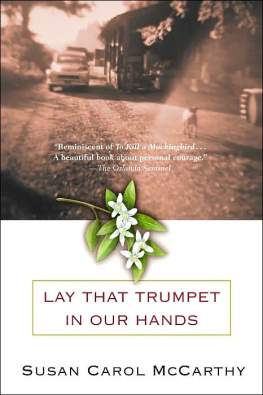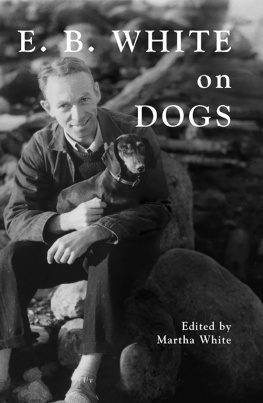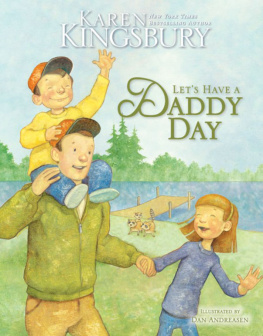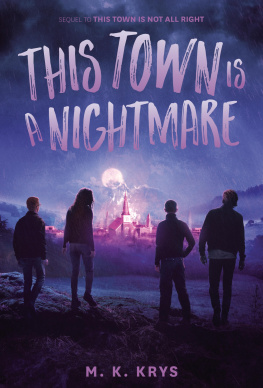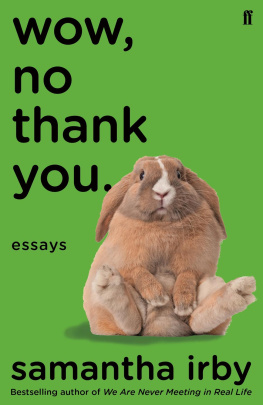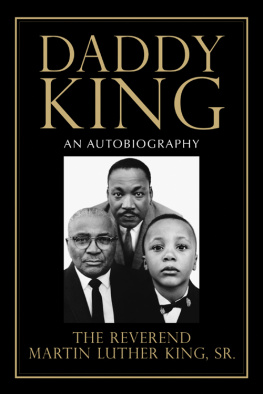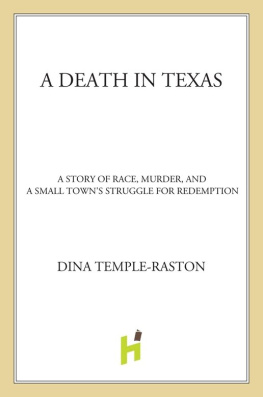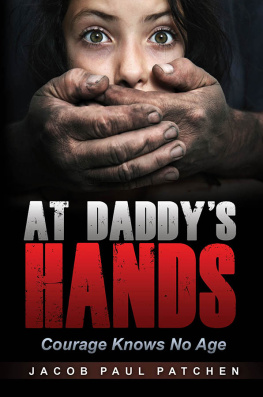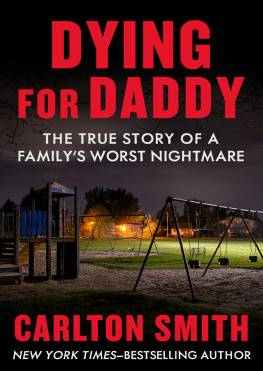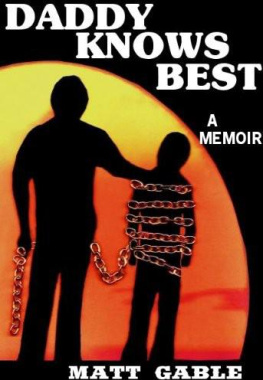Acknowledgments
When I was in my mid-twenties, visiting relatives outside Chicago, my paternal grandmother overheard me tell someone, I grew up in central Florida. Not long afterward, she pulled me aside. Wild plants and animalsand some unfortunate childrensimply grow up, Susan. You were raised! A whole lot of people invested a whole lot of time and effort in your upbringing. Dont deny them the credit they deserve for the way you turned out.
I turned out to be a writer. And credit for that is long overdue to a handful of teachers who, early on, insisted I take my writing and myself seriously. Thank you to Gladys Wilson, Aronelle Lofton, Sara Harvey, Janet Connelly and Myrtle Hubbard. Belated thanks also to the fistful of professionals who, later on, challenged me to write hard and fast (and paid me for the privilege of doing so): W. R. Mac McGuffin, publisher of my hometown newspaper; Wilson Flohr in Orlando, Alan Goldsmith in Atlanta, John VanderZee in San Francisco and Tom Sharrit in San Diego.
Of course, I might never have moved from point A (writing Advertising) to point B (attempting a Book) without the inspiration of Diane Dunaway and the San Diego Writers Conference. And, I might not have finished the manuscript properly without the help of Elizabeth George and my fellow writers in her Masters Class at the Maui Writers Retreat.
From beginning to end, the reference departments of the local libraries in Carlsbad and Oceanside were a huge and constant help to me. The archivists at The Miami Herald and The Orlando Sentinel could not have been more patient or accommodating. Mr. Frank Meech, retired F.B.I. and one of the lead agents on the Moore murder case, was a generous and enjoyable source.
My book club read the early draft with insight and enthusiasm. And, afterward, became the best cheerleaders any writer could hope for. Bless you, Kathleen Bernard, Mary Blaskovich, Jan Brownell, Lindsey Cohn, Francie Droll, Rosemary Eshelman, Valerie Gilbert, Peggy Martinez, Kitty Meek, Debbie Moyer, Audrey Piper, Tricia Rowe, Monika Stout and Cris Weatherby. Also, Blye Phillips, my favorite contrarian who demanded, Tension! I need more tension!
Eternal gratitude to Lane Zachary for becoming my agent and my friend. Lane reads with an editors eye and an artists heart. She also, according to Bantams Kate Miciak, writes one of the best cover letters in the business. Kate is my editor. Everyone says Kate is brilliant and, in my experience, everyones right. Shes also fun, funny, and a writers dream to work with. Kate connected me to the big, boisterous Bantam family who, sight unseen, embraced me as one of their own. Heartfelt thanks to attorney Matthew Martin, managing editor Anna Forgione, copyeditor Pat Crais, art director Jim Plumeri, and book designer Laurie Jewell, for your time and efforts on my behalf.
Thanks, above all... to my sister-friend Joanne who lent me her passion for baseball and the most patient ear possible. To my husband Paul and our sons, Travis and Connor, who made time and space in our lives so Mom can write and let no good news go uncelebrated. To my mother who provided liberal amounts of horticultural detail and maternal encouragement. And to my father. This project began as a present for Dads seventy-fifth birthday. In the six months of almost daily long distance phone calls, discoveries, and heart-to-heart discussions before he died, it became, clearly, his gift to me. Thanks, Dad. You, more than anyone, get the credit for the way things turned out.
Susan Carol McCarthy
January 2001
About the Author
SUSAN CAROL McCARTHY was born and raised in central Florida. She lives in California and is also the author of TrueFires.
Revelations
The seven local Klansmen who were indicted by the Grand Jury found a friend in Federal Judge George W. Whitehurst. In December 1953, the judge granted their motion to quash the indictments because, he said, the Federal Grand Jury has no jurisdiction to investigate the acts about which the suspects allegedly lied. The Klansmen walked free.
But long before the men returned quietly to Opalakee, it was clear, in the days, weeks, and months that followed the blast in our back grove, that Emmett Casselton was a man of his word. The Opalakee Klan not only left my family alone, it left the rest of the community, black and white, alone as well.
Some people said the Klan disbanded because of Emmett Casseltons say-so. The old man got tired of it, they claimed, and after all, he was the Exalted Cyklops and the areas largest and most powerful employer.
I liked the version Armetta came up with better, that it was the wives and mothers of the Klansmen who decided theyd had enough of the Invisible Empire. No more late-night meetings at the fishing camp, no more political rallies downtown, no more white robes in and out of the dry cleaners, the women told their men, eager to shore up what little social equity remained in the fine old names that had been dragged through the mud. Somebody heard one ex-Klansmen joke the Gran Jury was nothin compared to my wife.
Years later, I heard a third version. I was in law school then and had driven home for Miss Maybelle Masons funeral service. Old Miz Sooky Turnbull, the ancient gardener, her face powdery and pocked like a huge potato, told me, Yknow, Marie Louise, after that big boom behind your house, Maybelle marched right over to Casbah Groves warehouse, told Ol Emmett shed got wind of his shenanigans. Told him if the Klan harmed so much as another hair on your brothers head, or anyone elses for that matter, shed report certain rather large discrepancies in Casbah Groves Railway Express waybills to the I.R.S.! Yknow, Maybelle moon-lighted as bookkeeper for the R.E.A. station for years. She told Emmett if he didnt think shed do it, he had another think comin. For some reason, Maybelle thought the world of your brother and you, Miz Sooky said.
Imagine that, I said, sorting my memories of Miss Maybelle and Miz Sooky like suits in a Bridge hand, hearts from spades, diamonds from clubs.
Not long after Daddy and Emmett Casseltons gentlemens agreement, the fishing camp in the middle of the lake became just that.
The children of The Quarters returned to the communal fun of hide-and-whoop, chick-mah-chick, and other favorite out-in-the-street games. After nearly sixteen months of having to hover near their houses since Marvins death, they relished their restored freedoms.
My brothers and I and the Samson boys dove in, literally, to new games of our own made possible by the disappearance of Dry Sink beneath the surface of the resurrected Little Lake Annie. Once again, as Miss Maybelle had claimed happened so long ago, kids leaped from the big limbs of the giant live oak and swung from ropes into the clear, ice-cold, spring-fed swimming hole.
One day, I invited Miss Maybelle to come see for herself the little lake. And she did, too, walking stiffly through the grove after work, in her sensible shoes and crisp gray-blue postmistress uniform. She stood outside the range of our wild splashes, arms folded over her chest, shaking her head from time to time.
When I swam over to her and got out of the water to ask what she thought, I noticed two things:
The first was that sometime over that summer, either Id grown or shed shrunk, but now we stood eye-to-eye and I wondered at the reasons Id spent so many years aggravated by this little old lady.
The second thing I saw was that, instead of looking at the lake and the boys high jinks, her attention had drifted to the giant live oak. I followed her gaze up the huge trunk, then I turned to her and said, Its still up there, Miss Maybelle. She looked at me sharply, but I didnt cower under her gaze as I might have.
Next page
